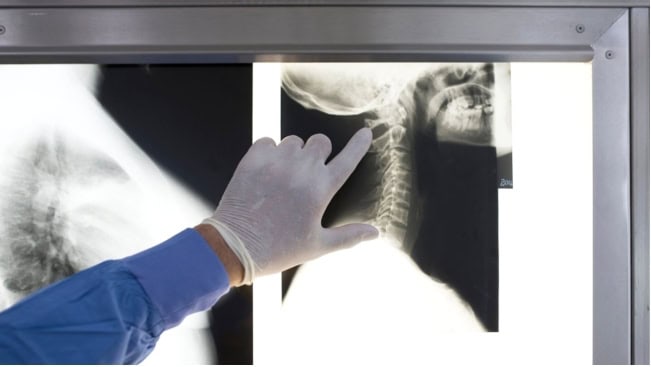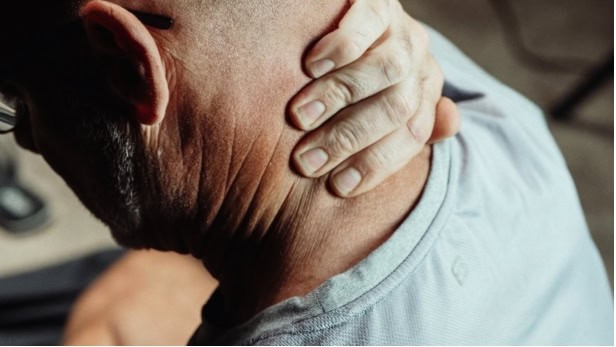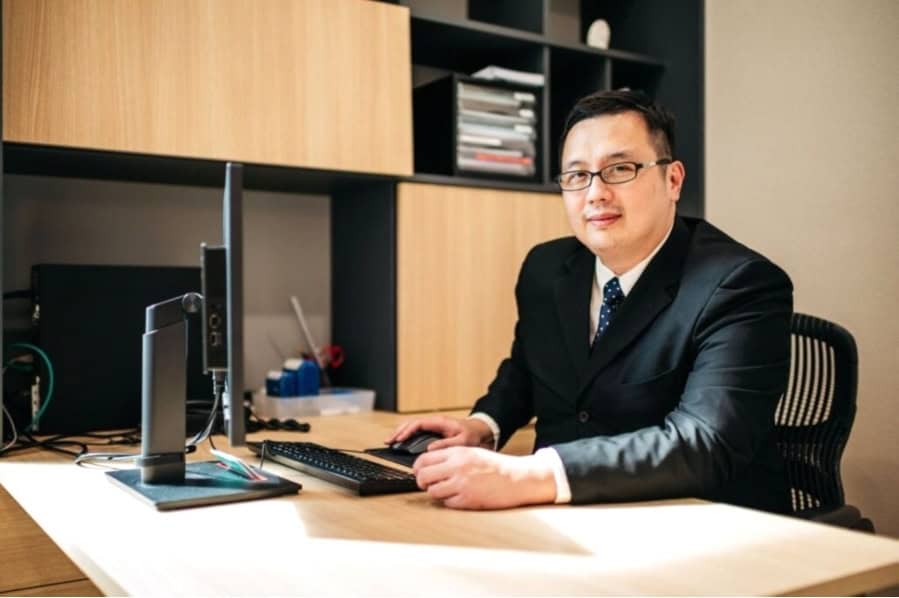The neck is a crucial part of our spine that supports the weight of our head while allowing for a good amount of movement. Even so, it’s also quite susceptible to injuries and issues that can lead to pain and limit our ability to move comfortably. While some people might just go through a phase of temporary neck pain that eventually goes away on its own, others might need some professional help to deal with their chronic pain or discomfort. That’s where orthopaedic surgeons come in – they’re the specialists when it comes to identifying and treating problems with our muscles and bones, including those that affect the neck.
Orthopaedic surgeons have a range of techniques up their sleeves to help patients manage their symptoms and improve their overall quality of life. These could include things like physical therapy, medications, lifestyle changes, and sometimes even surgery. But hey, let’s not jump the gun on surgery; it’s usually considered when everything else has been tried and hasn’t worked out. So, if you find yourself dealing with persistent neck pain or other symptoms that are interfering with your daily life, it’s a good idea to reach out to an orthopaedic surgeon for some guidance and assistance.
(https://my.clevelandclinic.org/health/articles/22278-cervical-spine)
The Role of an Orthopaedic Surgeon in Treating Neck Pain
Neck pain can happen for all sorts of reasons, and the diagnosis can be tricky. That’s why it’s a smart move to talk to an orthopaedic surgeon if you’ve got neck pain that just won’t go away. Chronic neck pain which lasts for months at a time, may be a sign of an underlying condition. These are some reasons why you should consult an orthopaedic surgeon:
- Many things can make your neck hurt, like strained muscles, arthritis, or issues with the bones in your spine. Each of these needs a different kind of treatment, and an experienced orthopaedic surgeon can figure out what’s causing your pain.
- Trying to play doctor with yourself can be risky. You might end up treating the wrong thing or waiting too long to get the right help. That could make things worse, which leads to more pain or disruptions to your daily life.
- Getting help from an orthopaedic surgeon early on can stop things from getting worse and give you a better shot at feeling better soon. Delaying treatment might mean you’ll have to deal with neck pain for a long time.
(https://www.everydayhealth.com/neck-pain/neck-pain-orthopedic-care.aspx)
The Causes of Neck Pain: Injurious and Non-injurious Sources
The causes of neck pain fall into two main categories: injurious and non-injurious causes. Injuries often come from accidents like falls or car crashes. These accidents can lead to neck pain either right away or later on, depending on the severity of the accident and the patient’s condition.
Now, let’s delve into the non-injurious sources of neck pain, which often has a lot to do with our work setups. Many workplaces use a kind of one-size-fits-all approach when it comes to setting up our desks and chairs. This can be a real pain in the neck, literally. Sometimes, we’re stuck with computer screens and chairs that just won’t budge or can’t be adjusted enough. That means we end up sitting in strange positions that put extra strain on our necks.
If you already have an underlying neck issue, well, things can get even trickier. Any trouble in your neck can make it less stable, and your body tries to make up for it by overworking neck muscles. Over time, these muscles can get tired out, and they can’t compensate anymore. That’s when you start feeling real neck pain, and it might bring along some other symptoms too. Now, when it comes to neck pain, it usually has three main sources:
- Muscular pain – This is when you overwork your neck muscles, leading to aching and cramping sensations. It’s not just your neck; this pain can spread to your shoulders and upper back.
- Discal pain – The intervertebral discs between your spine column can cause trouble too. If they get a tear on these discs, you may feel sharp pain. It may also lead to the protrusion of the disc, which may worsen your current condition.
- Facet joint pain – Your spine has these joints called facet joints, which provide stability. If they wear down over time, they can be a source of neck pain too.
(https://www.pexels.com/photo/close-up-photo-of-a-man-having-a-neck-pain-7298881/)
So, in a nutshell, neck pain can happen for all sorts of reasons, from accidents to unhealthy work setups, and it usually comes from these three sources: muscle strain, disc issues, or problems with facet joints. Orthopaedic surgeons utilize different methods to diagnose the specific cause of your neck pain. If you experience the following symptoms, you should seek medical attention:
- Shooting pain down the arms – This happens when nerves in the neck get pinched, causing sharp, electric-like pain shooting down the arms, often triggered by specific neck positions. This is called radicular pain.
- Arm or hand numbness and weakness – Pinched nerves not only cause pain but also affect sensation (numbness) and the ability to move your arms and hands (weakness). Any nerve compression in the spine can result in numbness and weakness.
- Tingling, burning, or crawling sensations – Nerve pinching within the spinal canal can create unusual sensations like tingling, burning, or a feeling of insects crawling on the skin. This condition is known as paraesthesia.
- Spinal cord pressure – Severe narrowing of the cervical spinal canal can put significant pressure on the spinal cord, leading to a condition called myelomalacia. This may also increase the risk of injury from falls, known as central cord syndrome.
- Loss of coordination – Spinal cord softening can result in the loss of coordination in the hands, making it challenging to manipulate small objects. In some cultures, this might affect the ability to use chopsticks or handle sewing needles/buttons.
- Unsteadiness when walking – In severe cases, neck-related issues can lead to unsteadiness while walking, increasing the risk of falls and injuries. This condition is known as myelopathy and can affect both upper and lower limbs.
In essence, neck pain can cause various symptoms, depending on the underlying issues, including pain, numbness, weakness, unusual sensations, and even difficulties with coordination and mobility. It is also important to note that neck pain can also be a symptom of many other health conditions, like gallbladder issues, meningitis, and cancer. To diagnose and rule out any conditions, you will undergo diagnostic tests.
(https://www.pexels.com/photo/close-up-photo-of-woman-having-a-neck-pain-7298636/)
Diagnosis and Treatment for Neck Pain in Singapore: Finding the Right Orthopaedic Specialist
At The Orthopaedic & Pain Practice, the orthopaedic surgeon, with the help of a team, initiates the process with a comprehensive medical interview to understand the patient’s neck pain symptoms and potential causes. Following this, a focused examination of the neck and related areas is conducted to identify any signs of neck issues.
After that, you might be asked to have some cervical spine X-rays or an MRI scan to get a better idea of what’s causing your neck pain. With this information in hand, the orthopaedic surgeon will talk to you about their findings. Together, you can discuss your treatment options. Each patient will have a treatment plan because this plan always depends on the severity of the pain and the condition of the patient.
Neck Pain and Gallbladder Issues
Neck pain linked with gallbladder issues is not a widely addressed association; however, it is an interesting connection. If you delve deeper into the symptomatology seen with gallbladder dysfunction, it is not uncommon to see a referral in symptoms towards the neck. The chronic post-operative presence of neck pain was highlighted when it was associated with laparoscopic cholecystectomy for gallstones as chronic acalculous pain, with the commonality of abdominal pain also seen. It is not only neck pain that has been reported; larynx tenderness is another uncommon presentation following cholecystectomy. This direct relationship that some have identified between upper quadrant issues and the posterior neck offers good insight for clinicians seeking to appreciate the body as a whole with interconnecting systems.
The importance of understanding this referral site of the visceral illness as a concerning mimicker of neck pain is highlighted in the documentation of how it is seen during referral patterns. Of the few documented papers on specific referral patterns, they do refer to the neck. The description of gallbladder pain is most commonly seen in the right shoulder, while at times it may be seen as band-like thoracic back pain. This leads to anemia with verified leukocytosis, seeing urgent care before definitive care is provided through surgical intervention. This confusion indicates the importance a piece’s differential diagnosis can be in seeing where it fits into the clinical picture. The diagnosis of neck pain can require a detailed list of pathology in analyzing the cervical region—though it is not common to consider extra-cervical causes without history findings. The use can, therefore, be apparent in locating a recorded case’s etiology. In neck pain presentations, it is not only whiplash that can create a heightened clinical response; though if this inflammatory response is seen, it can indicate a poorer prognosis. With enough information gathered, gallbladder referrals should become rarer. In sum, it is the clinical picture and the ascribed symptoms that link with the current knowledge to which a piece is best utilized, suggesting the importance of a holistic approach when diagnosing neck pain presentations.
Connection between Gallbladder Problems and Neck Pain
There are no official mechanisms for explaining or understanding the connection between gallbladder problems and neck pain, but in my clinical experience, I have seen two mechanisms to be present. Referred pain happens when the brain can’t localize pain and may mistakenly perceive the location of discomfort elsewhere in the body. This can be the result of cervical radiculopathy, or perceived neck pain that is actually originating from the gallbladder. A participant had experienced worsening neck pain over 2 years that was related to her gallbladder function. She had an MRI of her cervical spine performed and all it showed was severe degenerative disc disease, disc bulging, and other moderate arthritic changes at C5/6 and C6/7 levels. The bones and joints of the cervical spine were all in alignment and there was no neural compromise of the spinal cord or the exiting nerves. She had an MRI of the shoulder to check for carpal tunnel syndrome, which documented a small amount of fluid and mild inflammation around the distal biceps tendon. Another MRI demonstrated her elbow to be entirely normal. After gallbladder surgery had calmed the inflammation down completely and corrected the shape of the bile, she had been utterly free from arm pain until June of 2018 when she overdid it crawling on a ladder while spring cleaning and cooking for a family party. Within 3 weeks of overactivity, she was back to severe symptoms.
Treatment Options for Neck Pain
Customizing a treatment plan for neck pain will depend largely on the presenting signs and symptoms, as well as the patient’s activity level and specific degenerative diagnoses. There is no one-size-fits-all treatment package, as each treatment plan needs to be tailored to the patient and their symptoms. A patient suffering from acute cervical radiculitis due to a large herniated nucleus pulposus at C5-6 requires surprisingly different surgical and nonsurgical care than a patient whose symptoms result from multilevel degenerative disease that has slowly accrued over decades. By learning more about the various factors that can contribute to neck pain or symptoms, namely bulging of the discs, strong conservative treatments and therapeutic modalities can be applied to guide a patient’s recovery process. Conservative treatments for neck pain aim to relieve pain, reduce inflammation and muscle spasm, and restore normal motion to the musculoskeletal structures.
Physical therapy: Various forms of physical therapy help to encourage the body to move in normal, efficient ways and prevent abnormal patterns of movement. Physical therapy can restore the strength and endurance of the muscles of the neck, which tire more easily when overcompensating for severe degeneration of the discs and facet joints. Medications: Anti-inflammatory medications may be helpful for neck pain. In some cases, muscle relaxants alleviate the acute and severe muscle spasm of the neck. In extreme cases, something as strong as narcotics may be utilized for the severe pain itself. Injections: Injections can be an important diagnostic tool in the assessment of neck pain and may also serve as an important form of treatment. Therapeutic steroid injections can reliably decrease inflammation with rare side effects. Surgical treatments for neck pain depend on the underlying problem leading to your symptoms. Often, a multi-level approach is necessary for adequate long-term relief. Helping educate patients on the risks and benefits of their care and involving them in the decision-making process can be very helpful. Sometimes the best possible option for one patient may not be the best for another; however, for patients who are willing to make changes in their daily lives, treatment can be beneficial. It is important to remember that a cure is not always possible; but if given the right tools and the right help along the way, recovery may be achieved. Discharge from care in cervical degenerative spine cases requires encouraging the patient to continue lifestyle management of their symptoms as they pursue independent healthy activities that they enjoy. A patient with multilevel disc disease requires follow-up visits at regular intervals to monitor their progress and continue to encourage the necessary lifestyle modifications.
General Treatment Approaches
Management of neck pain begins with the implementation of conservative approaches. These include trying to maintain the activity level and commonly suggested self-care measures such as rest, application of ice or heat, changes in ergonomics at the workplace or home, and use of over-the-counter medications. Some patients benefit from nonprescription anti-inflammatory medications, while others may have improvement from analgesics. These medications only help with pain relief, yet they do not provide anatomic or pathophysiologic support. After a relatively brief period of rest, patients are often advised by health care professionals to resume good-mannered activities. Therefore, it is imperative for individuals to maintain normal physical motions if it is plausible. Even following a traumatic injury, resumption of activities should not be aggressive.
A vital aspect of the prevention and therapeutic use of neck pain is to include neck exercises and stretches to potentially confer musculo-ligamentous support about the implicated neck articulations, as well as to improve neck motions. This recommendation is often made by a physical therapist or a general practitioner. This is a proactive approach; as muscles become pliable and strong with exercise and support, individuals are less likely to sustain future injuries, and these stretches mitigate neck pain. Alternative therapies can also be suggested. Fitness and body mechanics can also be influential in optimizing musculoligamentous support, improving range of motion, and sustainably diminishing neck pain. These are proactive tools to use in keeping a vital element of the body free of a malady described by convoluted and complex expression. However, it is essential for people to gradually introduce movements so that they can fully adapt to their daily physical quests. Any sort of neck pain resulting from physical maneuvers should not be left unattended. Individuals are often advised to contact appropriate health care or sports medicine groups to gain a correct diagnosis.
Tailored Treatments for Specific Conditions
The type of treatment and when the person is advised to return to activity might include questions like, “What are activities of daily living like for you?” or “What kind of work do you do?” Tailoring treatment to the person’s individual circumstances is done throughout healthcare. Anyone with gallbladder problems or appendicitis can expect a very specific care pathway delivered in a very specific sequence, usually guided by diagnostic imaging. When the diagnosis is made, there are very good scripts for healing, and while there are some individual differences, most people with gallbladder problems and appendicitis follow a pretty predictable path of recovery.
People with neck pain related to problems in the soft tissues or even more chronic issues like osteoarthritis should likely expect some of the same type of tailoring based on the nature and specific aspect of their condition. Here, special attention should be paid to the pain problem and factors that might be making it worse, but also to the person and their particular situation. For example, many people with neck pain eventually develop pain and tightness in their neck and upper back muscles. Developing a plan that considers both the potential aggravating role of the muscles and the activity pattern that led to the painful muscle tightness is one way that therapy for neck pain can be specialized. Some treatments can be focused right on the tight muscles, including active release techniques, myofascial release, dry needling, or other muscle relaxing techniques. Other treatments might focus on the individual’s activity pattern, potentially offering new ways to engage the shoulder and mid-back that require less neck muscle “on” time. Initially, clinical questions that examine the person will guide this match of treatment to symptoms or special needs. Identifying, diagnosing, or untangling the many pain components of neck pain with test procedures like imaging do not necessarily translate to better outcomes but have the potential to shape a care plan. Since recovery happens in an individual, mixing and matching treatments depending on what is found in relation to the neck and examining the entire person is a reasonable clinical approach. Because the neck is surrounded by non-rehabilitation points of intervention in front-line healthcare, a more medicalized approach involves a team of clinicians working together, or at least communicating, sharing treatment goals and plans.
The Orthopaedic & Pain Practice offers a variety of treatments for patients with neck pain. These are all geared to alleviate your symptoms so you can live your life to the fullest. These are some treatments for neck pain:
- Medications to ease the pain and discomfort around your neck, shoulders, and arms.
- Lifestyle changes and advice so you can manage your condition better.
- Physiotherapy sessions to improve your mobility and function.
- Pain procedures to target the exact cause of your neck pain.
- Surgery to release pinched nerves and improve the cervical spine.
It’s worth noting that not all neck pain requires immediate medical attention. Sometimes, it gets better on its own, and you can manage it at home. However, if your neck pain starts affecting your daily activities, it’s a good idea to reach out for help. An orthopaedic surgeon is the right person to see. They can figure out what’s causing the problem and create a treatment plan that suits you personally. Your comfort and well-being are what matters most.
FAQs
What are some reasons to consult an orthopaedic surgeon for neck pain? Consulting an orthopaedic surgeon is crucial if you have neck pain because they can accurately diagnose the underlying cause, which could be muscle strain, disc issues, or facet joint problems. They also ensure you receive appropriate and timely treatment to prevent the pain from worsening.
What are the two main categories of causes for neck pain? The two main categories of neck pain causes are injurious and non-injurious sources. Injuries can result from accidents, while non-injurious causes often stem from poor workplace ergonomics or pre-existing neck issues.
What are some common symptoms associated with neck pain? Common symptoms of neck pain can include shooting pain down the arms, arm or hand numbness and weakness, tingling sensations, spinal cord pressure, loss of coordination, and unsteadiness when walking. These symptoms can vary depending on the underlying issue.
What diagnostic tests are mentioned in the article for diagnosing neck pain? You may undergo medical interviews, cervical spine X-rays, and MRI scans as diagnostic tests to gain a better understanding of the causes of neck pain.
What are some of the treatment options available for neck pain at The Orthopaedic & Pain Practice in Singapore? Treatment options for neck pain at The Orthopaedic & Pain Practice include medications to alleviate pain, lifestyle changes and advice for better management, physiotherapy sessions to improve mobility and function, pain procedures to target the root cause, and surgery to release pinched nerves and address cervical spine issues. The specific treatment plan depends on the severity of the pain and the patient’s condition.
References:
- https://www.theorthopaedicandpainpractice.com/service/neck-pain/
- https://www.webmd.com/pain-management/why-does-my-neck-hurt
- https://www.nhs.uk/conditions/neck-pain-and-stiff-neck/
- https://www.healthdirect.gov.au/neck-pain
Dr Yong Ren’s Profile
Dr. Yong Ren graduated from the National University of Singapore’s Medical faculty and embarked on his orthopaedic career soon after. Upon completion of his training locally, he served briefly as an orthopaedic trauma surgeon at Khoo Teck Puat Hospital before embarking on sub-speciality training in Switzerland at the famed Inselspital in Bern.
He underwent sub-specialty training in pelvic and spinal surgery, and upon his return to Singapore served as head of the orthopaedic trauma team till 2019. He continues to serve as a Visiting Consultant at Khoo Teck Puat Hospital.
Well-versed in a variety of orthopaedic surgeries, he also served as a member of the country council for the local branch of the Arbeitsgemeinschaft für Osteosynthesefragen (Trauma) in Singapore. He was also involved in the training of many of the young doctors in Singapore and was appointed as an Assistant Professor by the Yong Loo Lin School of Medicine. Before he entered the private sector, he also served as core faculty for orthopaedic resident training by the National Healthcare Group.
Dr. Yong Ren brings to the table his years of experience as a teacher and trainer in orthopaedic surgery. With his expertise in minimally invasive fracture surgery, pelvic reconstructive surgery, hip and knee surgery as well and spinal surgery, he is uniquely equipped with the tools and expertise necessary to help you on your road to recovery.








